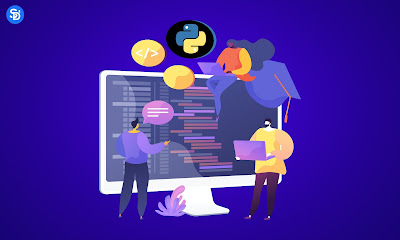In the realm of software development, Python and Full Stack Development are two popular paths that aspiring developers often consider. Python, known for its simplicity and versatility, has gained significant traction in various domains, including web development, data analysis, and artificial intelligence. On the other hand, Full Stack Development encompasses a broader skill set, allowing developers to handle both front-end and back-end aspects of an application. In this article, we will explore the pros and cons of Python development and Full Stack Development, shedding light on the key considerations when choosing between the two.
Pros of Python Development:
Ease of Learning and Readability:
Python's syntax is clean, readable, and beginner-friendly. Its simplicity makes it easier to understand, reducing the learning curve for new developers. Python's English-like syntax enhances code comprehension, making it an excellent language for both beginners and experienced developers alike.
Vast and Active Community:
Python boasts a large and vibrant community of developers who contribute to its ecosystem. The community actively develops and maintains numerous libraries and frameworks, ensuring a wealth of resources, documentation, and support. This strong community support is invaluable, especially for developers seeking assistance or looking to share knowledge.
Rich Libraries and Frameworks:
Python offers an extensive collection of libraries and frameworks that facilitate rapid Python development services. Frameworks like Django and Flask simplify the process of building web applications, handling common tasks such as routing, database integration, and authentication. The availability of these powerful tools enables Python development services providers to focus on application logic rather than low-level implementation details. With Python's robust libraries and frameworks, developers can deliver high-quality solutions efficiently and effectively.
Rapid Development:
Python's concise syntax, combined with its robust libraries and frameworks, facilitates rapid application development. The language's simplicity allows developers to write code faster and more efficiently, leading to increased productivity. Python's ability to handle complex tasks with fewer lines of code translates into quicker prototyping and shorter development cycles.
Cons of Python Development:
Performance:
Python, being an interpreted language, tends to be slower in execution compared to compiled languages like C or Java. For computationally intensive tasks, Python may not be the optimal choice. However, Python offers ways to mitigate this issue by leveraging external libraries written in faster languages or optimizing critical sections of code.
Global Interpreter Lock (GIL):
Python's Global Interpreter Lock is a mechanism that ensures only one thread executes Python bytecode at a time, limiting the full potential of multi-core processors. Consequently, CPU-bound tasks may not benefit from parallel processing within a single Python process. However, Python provides alternatives such as multiprocessing and threading libraries to overcome this limitation.
Pros of Full Stack Development:
Comprehensive Skill Set:
Full Stack Development equips developers with a broad skill set, encompassing both front-end and back-end technologies. This knowledge allows developers to handle all aspects of an application, from designing user interfaces to implementing server-side logic. By being proficient in multiple technologies, full stack developers gain a holistic understanding of the development process, enhancing their problem-solving capabilities.
Flexibility and Independence:
Full stack developers have the flexibility to work on different components of an application. They can seamlessly transition between front-end and back-end development, adapting to the project's needs. This flexibility also allows full stack developers to work independently, reducing the need for constant collaboration with other specialized developers.
Enhanced Career Opportunities:
Full Stack Development opens up a wider range of career opportunities. By mastering multiple technologies, developers become versatile and adaptable. They can work on diverse projects, ranging from small startups to large enterprises, and even undertake freelance work. Full stack developers often enjoy more career options and flexibility in their professional journey.
Cons of Full Stack Development:
Learning Curve:
Full Stack Development requires proficiency in multiple technologies, which can result in a steeper learning curve compared to specializing in a single technology. It demands a broader knowledge base and continuous learning to keep up with evolving technologies and frameworks. Consequently, beginners may find it challenging to grasp all the necessary skills simultaneously.
Time Constraints:
Due to the vast scope of full stack development, projects may take longer to complete compared to specialized development. The need to master various technologies and handle multiple responsibilities can potentially slow down the development process. Balancing front-end and back-end tasks can lead to increased complexity and time management challenges.
Conclusion:
Choosing between Python software development services and Full Stack Development depends on various factors such as personal preference, career goals, and project requirements. Python offers simplicity, versatility, and a supportive community, making it an ideal choice for Python software development services providers. With its extensive collection of libraries and frameworks, Python enables developers to deliver high-quality solutions efficiently and effectively. On the other hand, Full Stack Development provides a broader skill set and enhanced career opportunities, allowing developers to handle all aspects of the software development lifecycle. By considering the pros and cons outlined in this article, developers can make informed decisions that align with their aspirations and project needs, whether they choose Python software development services or pursue Full Stack Development. Both pathways offer valuable opportunities for developers to excel in their professional journey.




Comments
Post a Comment